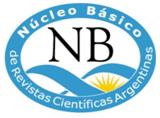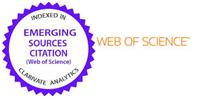Los límites del self-made man. Frederick Douglass, la construcción autobiográfica del éxito y el problema de la vida fallida
Resumen
La expresión “hombres hechos a sí mismos” tuvo un papel fundamental en el discurso estadounidense del siglo XX. La expresión, y otras semejantes, continúa siendo clave en las ideas contemporáneas sobre el éxito y el fracaso individual. Este artículo estudia el uso de estos términos en la obra autobiográfica del líder abolicionista Frederick Douglass, y en especial su famoso discurso titulado “Self-made men”. El objetivo principal es analizar los límites de una representación individual del éxito, así como las dinámicas comunitarias y las ideas contra el racismo que limitan e incluso desautorizan dicha representación. A partir de este análisis se ofrece también una reflexión sobre las dificultades para teorizar una vida fallida y, en general, sobre la conceptualización histórica del fracaso individual.
Palabras clave
Referencias
Fuentes primarias editas
(1858). “Self-Made Men”. The R. I. Schoolmaster, vol. 3, N° 12, p. 376.
(July 2, 1859) “Self-Made Men”. Scientific American, Vol. 1, N° 1, p. 4.
BEECHER, H., (1872). The Life and Deeds of Our Self-Made Men. Hartford (Connecticut), Cincinnati y Chicago: Worthington, Dustin & Co.; Queen City Publishing; y M. A. Parker & Co.
CLAY, H., (1860). “In Defence of the American System”. En The life and Speeches of Hon. Henry Clay. Third edition, vol. II. (pp. 9-67). Filadelfia: Leary, Getz & Co.
CLEVELAND, G., (1897), The Self-Made Man in American Life. An address delivered at Princeton University. New York: Thomas Y. Crowell & Company.
DOUGLASS, F., (2018 [1893]). “Self-Made Men. An Address Delivered in Carlisle, Pennsylvania, March 1893”. En J. R. McKIVIGAN, J. HUSBAND y H. L. KAUFMAN (Eds.), The Speeches of Frederick Douglass. A Critical Edition (pp. 414-453). New Haven: Yale University Press.
DOUGLASS, F., (1994). “Life and Times of Frederick Douglass”. En H. L. GATES (Ed.), Frederick Douglass Autobiographies (pp. 453-1048). Nueva York: Literary Classics of the United States.
SEYMOUR, CH. C. B., (1858). Self-made men, Nueva York: Harper & Brothers.
Fuentes secundarias
BENNETT, N., (2016). “To Narrate and Denounce: Frederick Douglass and the Politics of Personal Narrative”. Political Theory, vol. 44, N°2, pp. 240-264.
BLASSINGAME, J., (Ed.) (1977). Slave testimony. Two Centuries of Letters, Speeches, Interviews, and Autobiographies, Baton Rouge: Louisiana University Press.
BLIGHT, D. W., (2018). Frederick Douglass: Prophet of Freedom, Nueva York: Simon & Schuster.
BUCCOLA, N., (2012). The Political Thought of Frederick Douglass. In Pursuit of American Liberty. Nueva York: NYU Press.
CAROSSO, V. P., (1955). “Review of Irving G. Wyllie, The self-made man in America. The myth of rags to riches”. Indiana Magazine of History, vol. 51, N°2, pp. 181-183.
CLAVERO, B., (2018). “Derecho de libertad y status de oeconomía: el momento constituyente euroamericano”. En Constitucionalismo colonial (pp. 17-82). Madrid: Universidad Autónoma de Madrid.
CULLEN, J., (2013). “Problems and Promises of the Self-Made Myth”. The hedgehog review, vol. 15, N°2, pp. 8-22.
CURTIN, P., (Ed.) (1967). Africa Remembered, Narratives by West Africans from the Era of the Slave Trade, Madison: University of Wisconsin Press.
DAVIS, C. T. y GATES, H. L., (Eds.) (1986). The Slave’s Narrative, Oxford: Oxford University Press.
DILBECK, D. H., (2018). Frederick Douglass: America's Prophet, Chapel Hill: University of North Carolina Press.
ELLIOT, H., (2011). Frederick Douglass. From Slavery to Statesman, Nueva York: Crabtree Publishing.
FOSTER, A. K., (2011). “‘We Are Men!’: Frederick Douglass and the Fault Lines of Gendered Citizenship”. Journal of the Civil War Era, vol. 1, N°2, pp. 143-175.
GARCÍA MORENTE, M., (1996). “Décima conferencia. La cultura personal su forma y contenido”, en De la metafísica de la vida a una teoría general de la cultura (Curso en Buenos Aires de 1934). En J. M. PALACIOS y R. ROVIRA (Eds.), Obras completas (vol. 1, tomo 1, pp. 444-456). Barcelona: Anthropos.
GIBSON, D. G., (2018). Frederick Douglass, a Psychobiography, Nueva York: Springer.
HAUHART, R. C., (2015). “American Sociology's Investigations of the American Dream: Retrospect and Prospect”. The American Sociologist, vol. 46, N°1, pp. 75-87.
HOLLAR, S., (2018). Biographies of the New American Nation: George Washington, Thomas Jefferson, Frederick Douglass, and More, Buffalo (Nueva York): Britannica Educational Publishing.
LAMPE, G. P., (1998). Frederick Douglass: Freedom's Voice, 1818-1845, East Lansing: Michigan State University Press.
LEVINE, R. S., (2009). “Identity in the Autobiographies”. En M. S. LEE (Ed.), The Cambridge Companion to Frederick Douglass (pp. 31-45). Cambridge: Cambridge University Press.
LEE, M. S., (2009). The Cambridge Companion to Frederick Douglass, Cambridge: Cambridge University Press.
McKIVIGAN, J. R.; HUSBAND, J.; KAUFMAN, H. L., (Eds.) (2018). The Speeches of Frederick Douglass. A Critical Edition, New Haven: Yale University Press.
MERTON, R. K., (1938). “Social Structure and Anomie”. American Sociological Review, vol. 3, N°5, pp. 672-682.
MESSNER, S. F. y ROSENFELD, R., (2012). Crime and the American dream, Boston: Cengage Learning.
MOON, M., (1987). “‘The Gentle Boy from the Dangerous Classes’: Pederasty, Domesticity, and Capitalism in Horatio Alger”. Representations, N°19, pp. 87-110. https://doi.org/10.2307/2928532.
NAVEH, E., (1991). “The Transformation of the ‘Rags to Riches’ Stories: Business Biographies of Success in the Progressive Era and the 1920s”. American Studies International, vol. 29, N°1, pp. 60-80.
NEARY, J., (2017). Fugitive Testimony: On the Visual Logic of Slave Narratives, Nueva York: Fordham University Press.
OLSON, M., (1971). The Logic of Collective Action: Public Goods and the Theory of Groups, Boston: Harvard University Press.
PENDERGAST, T., (2000). Creating the Modern Man. American magazines and consumer culture, 1900-1950, Columbia (Missouri), Londres: University of Missouri Press.
PESSEN, E., (1977). “Equality and Opportunity in America, 1800-1940”. The Wilson Quarterly, vol. 1, N°5, pp. 136-142.
PIZZORNO, A., (1989). “Algún otro tipo de alteridad: una crítica a las teorías de la elección racional”. Sistema: revista de ciencias sociales, N°88, pp. 27-42
SCHMIDT, A., (1997). “Narratives”. En J. P. RODRÍGUEZ (Ed.), The Historical Encyclopedia of World Slavery (pp. 457-458). Santa Barbara (California), Denver, Oxford: ABC-CLIO.
SCHRAFF, A., (2014). The Life of Frederick Douglass. Speaking Out Against Slavery, Nueva York: Enslow Publishing.
STARLING, M., (1981). The Slave Narrative: Its Place in American History, Boston: G. K. Hall.
THOMAS, H., (2003). Romanticism and slave narratives, Oxford: Oxford University Press.
THOMAS, K., (2009). The Ends of Life. Roads to Fulfillment in Early Modern England, Oxford-Nueva York: Oxford University Press.
TROTMAN, J., (2011). Frederick Douglass. A biography, Santa Barbara (California), Denver, Oxford: Greenwood.
VILLENA, L. A. de, (1997), Biografía del fracaso. Perseverancia y validez de un mito contemporáneo, Barcelona: Planeta.
WYLLIE, I. G., (1954). The self-made man in America. The myth of rags to riches, New Brunswick: Rutgers University Press.
WINKLE, K. J., (2000). “Abraham Lincoln: Self-Made Man”. Journal of the Abraham Lincoln Association, vol. 21, N° 2, pp. 1-16.
Enlaces refback
- No hay ningún enlace refback.
Copyright (c) 2023 Magallánica : revista de historia moderna

Este obra está bajo una licencia de Creative Commons Reconocimiento-NoComercial-CompartirIgual 4.0 Internacional.
 | Magallánica : Revista de Historia Moderna es editada por el Grupo de Investigación en Historia de Europa Moderna de la Facultad de Humanidades de la Universidad Nacional de Mar del Plata y por la Red de Historia Moderna ISSN 2422-779X (en línea)
|
La Dirección no se responsabiliza por las opiniones vertidas en los artículos firmados. | |
Resultados de evaluación: Magallánica... es evaluada por:
Magallánica...se encuentra en las siguientes bases de datos:
Miembro de:
| |



























